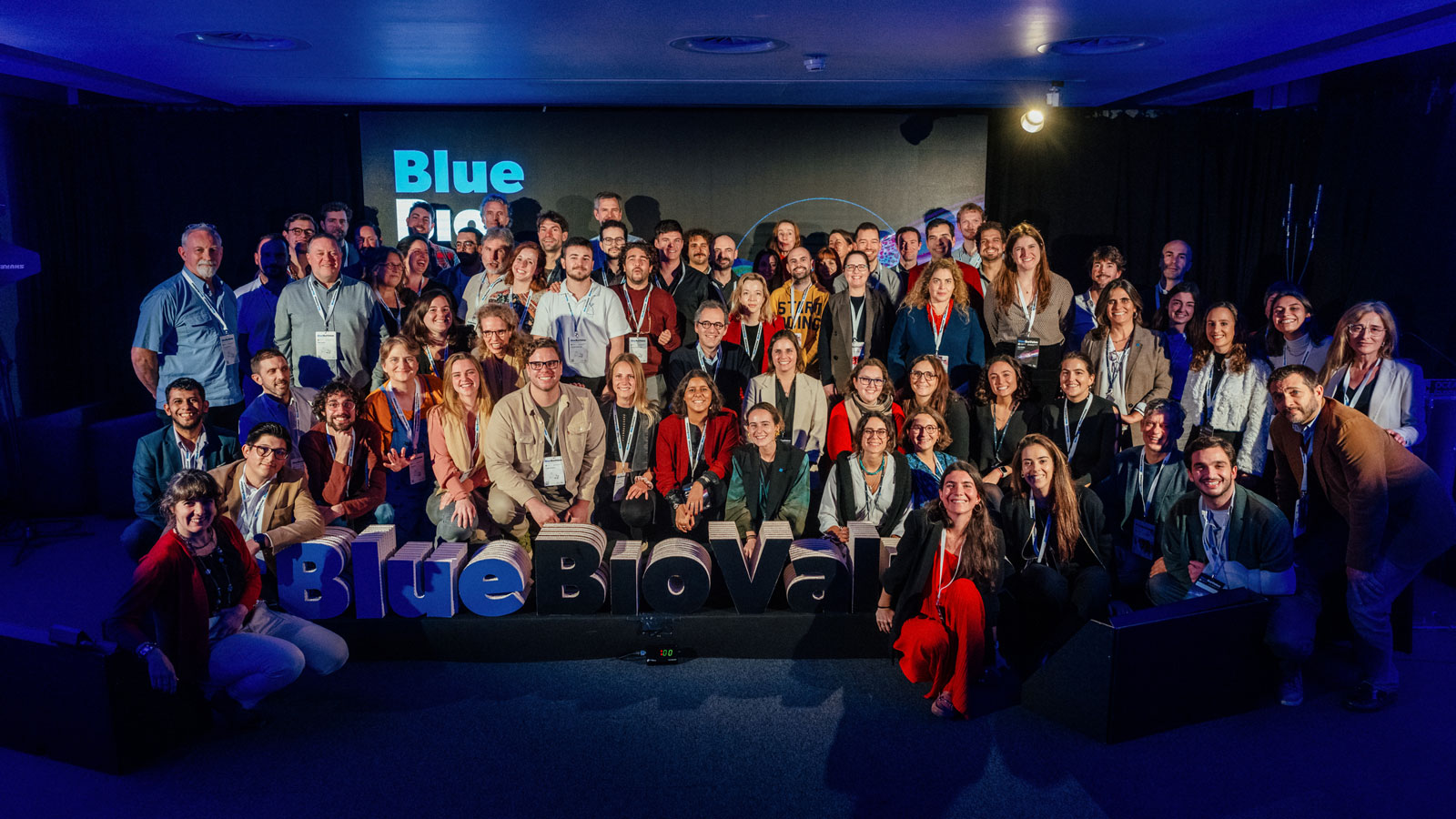The future is blue
Six years of the Blue Bio Value programme
When the Calouste Gulbenkian Foundation and the Oceano Azul Foundation teamed up to create Blue Bio Value – one of the first international entrepreneurship programmes in blue biotechnology – the ecosystem of startups and SMEs in this field was practically non-existent.
Already strongly committed at the time to protecting and restoring the ocean, the Calouste Gulbenkian Foundation had a concrete vision for investing in stimulating this market: to make Portugal a leader in promoting sustainable marine scientific and biotechnological innovation. Using biological resources from the sea – such as algae or bacteria – this initiative was planned to respond to real market needs (food industry, pharmaceuticals, cosmetics, biomaterials, among others), while protecting marine ecosystems.
Portugal had outstanding competitive advantages that would allow it to develop this ecosystem at the national level and lead the way at a European level.
At the time, market trends already pointed to promising growth in the sector in Europe, the United States and Canada. For its part, Portugal had outstanding competitive advantages that would allow it to develop this ecosystem at the national level and lead the way at a European level: it is one of the richest countries in Europe in terms of marine biodiversity and has more than 30 research and development (R&D) laboratories and centres of excellence in marine biology, ecology and biotechnology.
In the months leading up to the programme’s launch, a detailed analysis of the barriers to the sector’s growth in Portugal identified three main obstacles: scarcity of available funds and investment; complexity of legal and regulatory processes; and existing constraints on the development and expansion of technology.
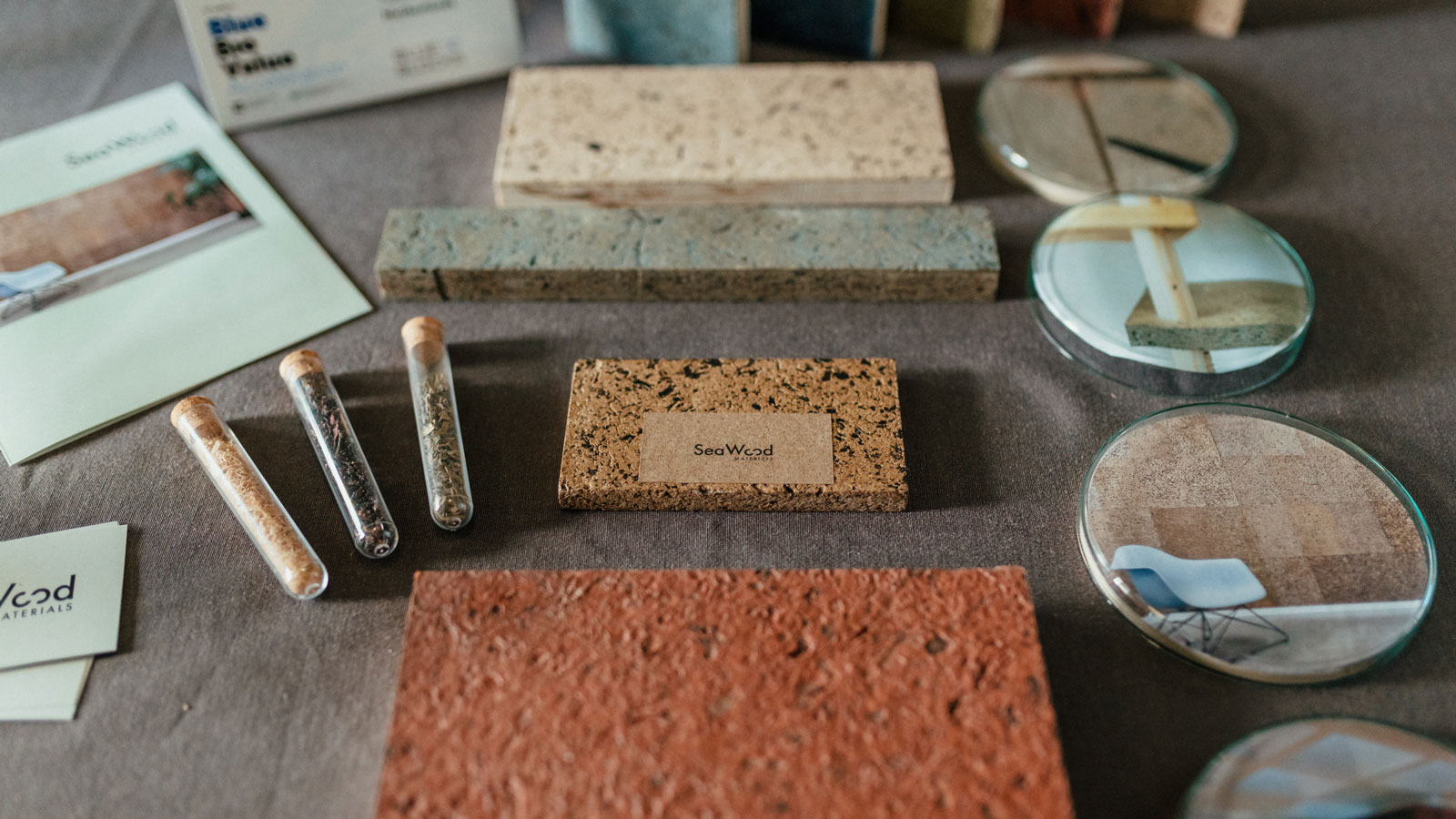
Acceleration and Ideation, two sides of the same coin
Blue Bio Value – Acceleration was created within this context, aiming to tackle these obstacles. The programme aimed to accelerate startups that operate within the marine bio-resources value chain, and whose services or products offer sustainable alternatives to the market. Over the course of six years (2018-2023), the Calouste Gulbenkian Foundation and the Oceano Azul Foundation supported the consolidation and expansion of 96 startups from 31 nationalities. After participating in the programme, these startups were able to internationalise their activity, diversify their offer or raise investment that would allow them to continue to grow.
In 2020, Blue Bio Value – Ideation was launched to complement the Acceleration programme, which was responding to the barriers initially identified. The Ideation programme addressed other needs: fostering the generation of new ideas, exploring potential business opportunities that biotechnology can offer and encouraging the transfer of technology and knowledge from Academia to the market. Designed to attract the academic community, the Blue Bio Value – Ideation programme has since challenged students and researchers to develop and market technological solutions born in universities, laboratories and research centres that might otherwise remain within the academy’s doors.
Over the last four years (2020-2023), the Ideation programme has reached a total of 162 participants through 58 new projects. One of the most successful cases is Horta da Ria, a participant from the first edition, which also took part in the Acceleration programme in 2020. This company’s products are based on salicornia extracted from the Ria de Aveiro and produced using sustainable processes. More recently, the Easy Harvest project was set up as a company in Portugal, taking part in the third edition and being selected for one of the highest quality cohorts in the programme’s history. The company focuses on realising the value of seaweed by monitoring and harvesting wild macroalgae.
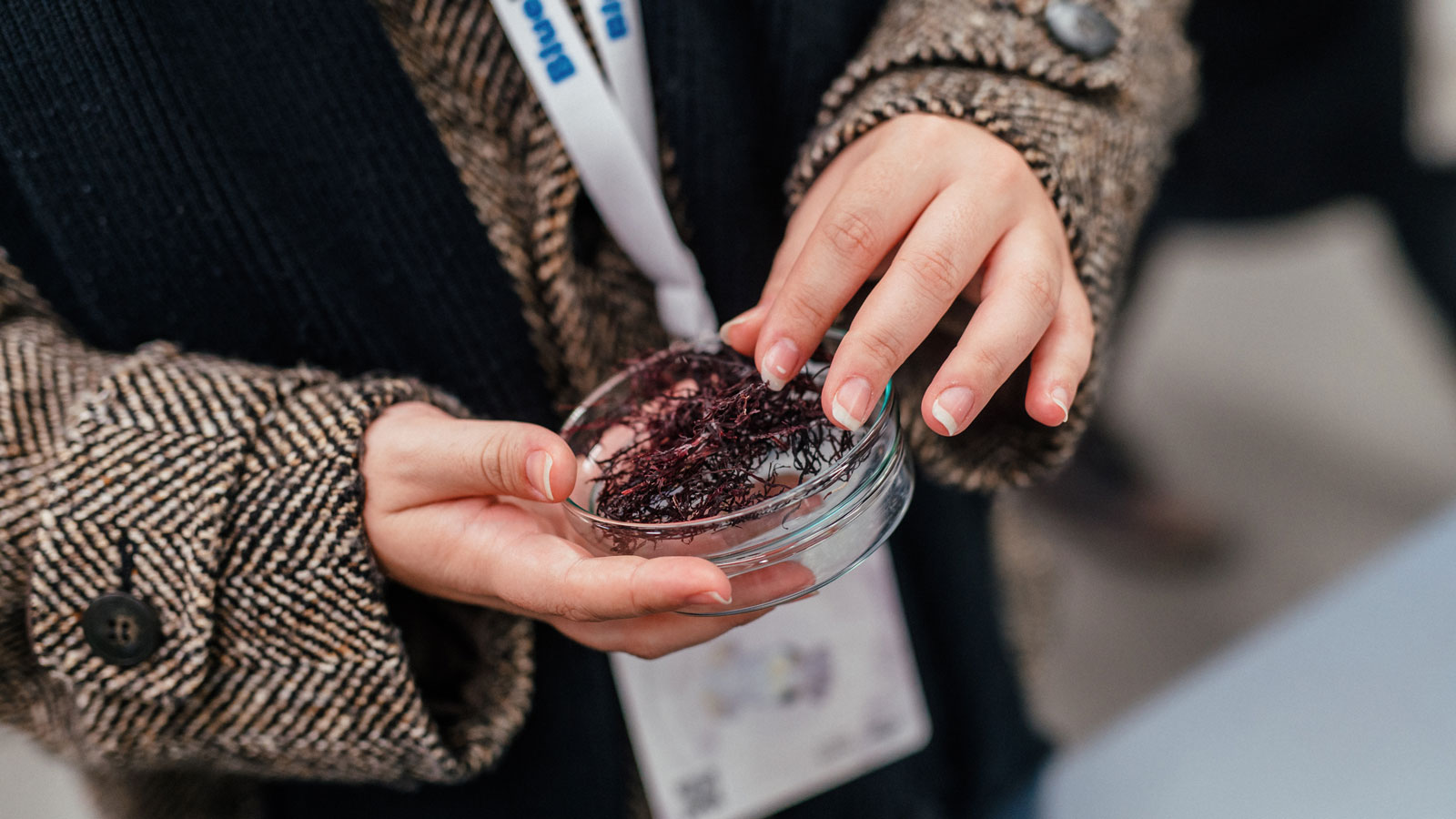
A path of impact and growth
Six years on from the inception of Blue Bio Value, the growth of startups and SMEs operating in the blue biotechnology ecosystem is evident, as is the involvement of investors, the scientific community, entrepreneurs and managers of large companies, attracted by the enormous potential of this market.
We make no secret of the fact that when the programme was launched, expectations and ambitions were high, but what has happened over the last few years has been nothing short of astonishing. Today we have no doubt that the Blue Bio Value programme has played a key role in the change we have seen.
The landscape has changed a lot from the first to the most recent edition of Blue Bio Value. In 2023, the Acceleration programme welcomed the most solid and diverse group of startups ever, not only in terms of the number of industries represented, but also in terms of the technological maturity of the startups competing.
With an investment of 2.3 million Euros, split between the two foundations, here are some of the main indicators of Blue Bio Value’s success:
Acceleration
Ideation
We are seeing the birth of marine biotechnological solutions in the Portuguese market and increased investment in companies and startups working in this area.
Portugal, a global hub for the blue bioeconomy
Portugal is no longer the same either. We are seeing the birth of marine biotechnological solutions in the Portuguese market and increased investment in companies and startups working in this area. New networks have also been established, jobs created, and synergies developed that help extend the marine biotechnology value chain.
There have even been several cases of international startups that have taken part in the programme and ended up establishing themselves in Portugal. Algaesys, an Italian startup that develops algae and bacteria-based technology for water treatment plants and uses 80% less electricity, set up a company in Portugal and has established national partnerships to manufacture infrastructures that the company uses in other countries. Biosolvit, a Brazilian biotech startup that develops natural absorbents used for onshore or offshore oil spills and sustainable alternatives for soil fertilisers, used its funds from winning the second edition to set up a company in Portugal and expand its business to Europe. Resqunit, a Norwegian startup that develops systems to reduce the loss of fishing equipment in the ocean, has also opened an office in Portugal and, in 2023, established a partnership with the Regional Fisheries Directorate of the Government of the Azores to prevent the loss of fishing gear on the high seas.
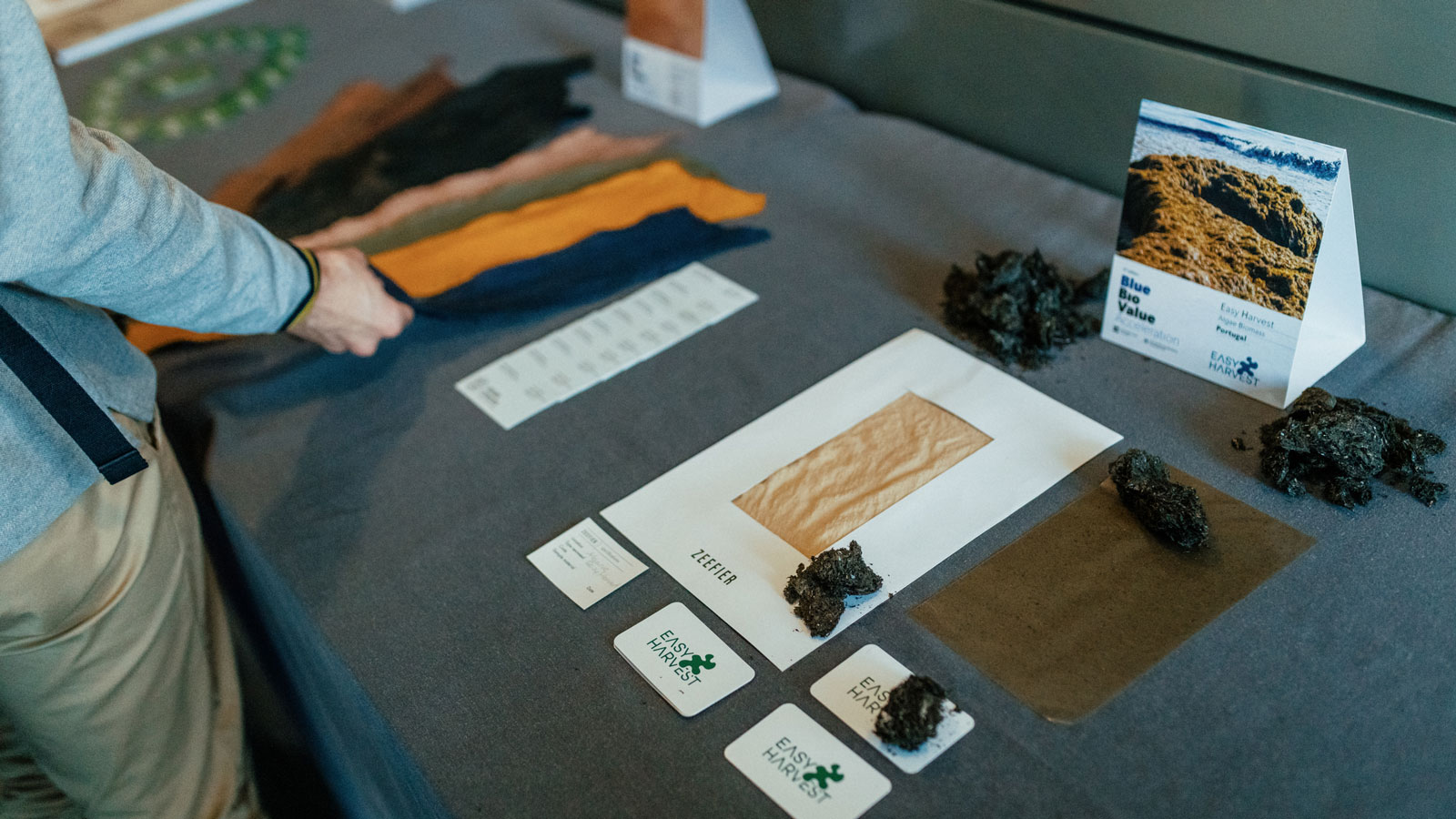
In 2021, the Calouste Gulbenkian Foundation supported the creation of the Blue Bioeconomy Hub platform, in a process led by the Oceano Azul Foundation. This led to an investment from the national Recovery and Resilience Plan funds equivalent to 133 million Euros by 2025 to the ‘Blue Bioeconomy Pact’. This Pact is the result of a consortium of 83 entities, including R&D centres, startups, blue biotechnology SMEs and business groups who are capable of contributing to Portugal’s re-industrialisation by developing business models using marine bio-resources, driven by the principles of circularity, zero waste, sustainability and decarbonisation.
More recently, the Portuguese government has also committed itself to the goal of making Portugal an International Blue Bioeconomy Centre by 2030.
Philanthropy has the important role of generating evidence on new opportunities that contribute to more sustainable development.
The contribution of philanthropy
While Blue Bio Value is now a benchmark programme for promoting more responsible economic models with a positive impact on the ocean, at the time of its creation it was one of the few programmes on a global scale with these concerns. Since then, new ocean-focused accelerators have emerged, competing directly with it and helping to energise the market.
On the one hand, this makes us deeply proud because this is also – or above all – the role of foundations: their independence, availability of resources and unique position allows them to take risks and invest in areas where the public and private sectors are unwilling or unable to, both due to lack of financial resources and uncertainty about the results that will be obtained. On the other hand, philanthropy also has the important role of generating evidence on new opportunities that contribute to more sustainable development. The potential risk of investing in a programme with these characteristics has turned out to be a sure shot: Blue Bio Value showed that what was an aspirational vision six years ago is now a proven reality, with numerous success stories and a widening network of interested investors willing to continue financing the development and expansion of this market. We therefore believe that the mission we set out to achieve has been successfully accomplished. It is now time to move in other directions.
The ocean will continue to be a priority for the Calouste Gulbenkian Foundation in its 2023-2027 programme cycle, through the Sustainability Programme. Projects such as Gulbenkian Blue Carbon renew the Calouste Gulbenkian Foundation’s commitment to responding to some of today’s main environmental and socio-economic challenges, always with a view to protecting and enhancing the ocean – a vital resource upon which the planet, and our lives, depend entirely. And today, even more than six years ago, we have no doubt that the future is blue.
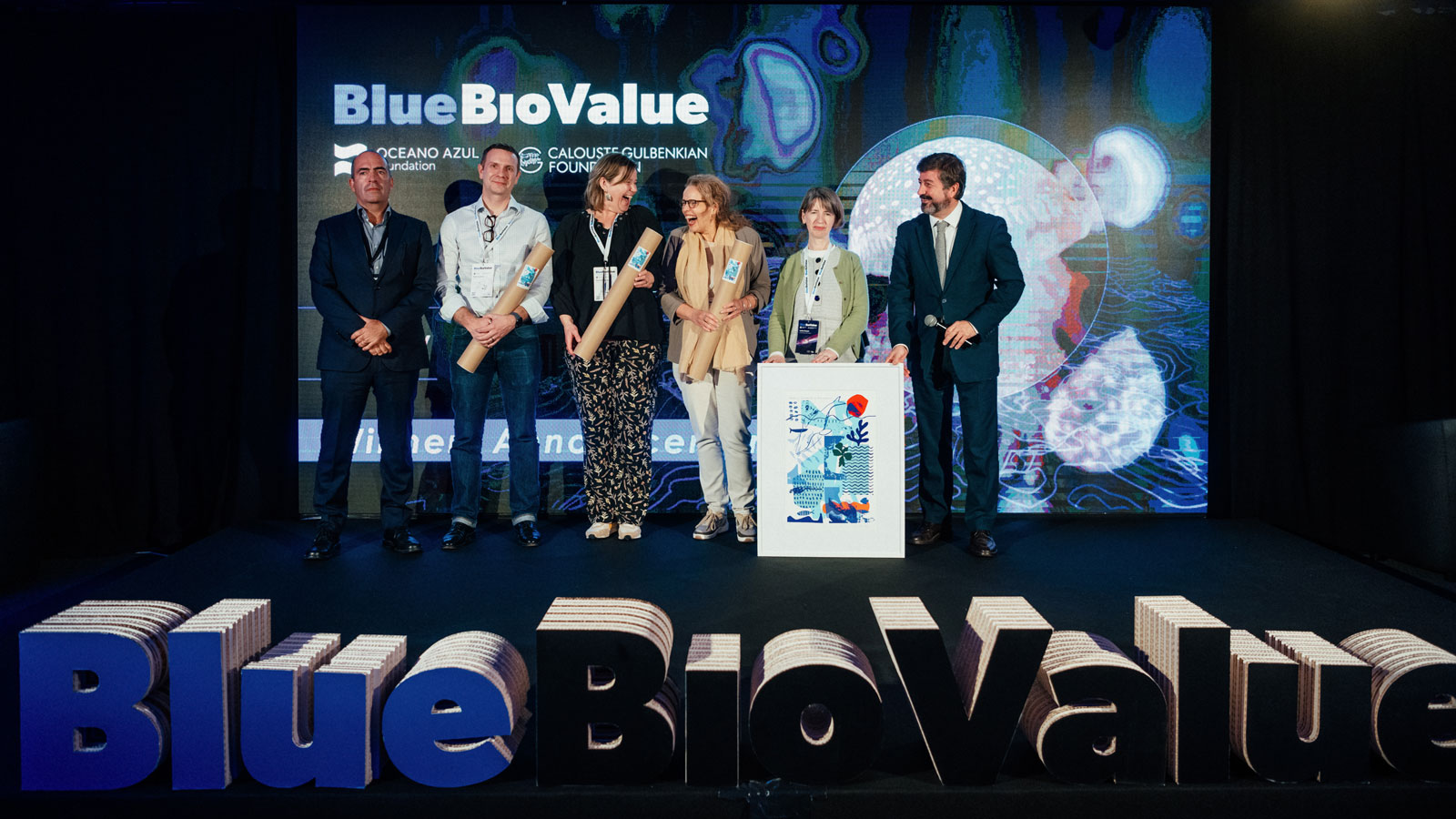
Acknowledgements
The success of the Blue Bio Value programme would not have been possible without the commitment and strong partnership of the Oceano Azul Foundation, to whom we are grateful for these years of collaborating with and having a shared vision.
We would also like to highlight the support, knowledge and professionalism of the partners who implemented the programmes. Having joined Blue Bio Value in 2021 to manage the Acceleration component, MAZE's ability to work and deliver results led it to take on the management of the Ideation component in 2023. From the outset, we were also privileged to have BlueBio Alliance as a scientific partner, responsible for validating the technical solutions presented and managing the Blue Demo Network, a network of Portuguese infrastructures and services made available to the winners of the Acceleration programme.
We must also mention Fábrica de Startups, the partner responsible for implementing the Acceleration programme until 2020, and BGI, the partner responsible for implementing the Ideation programme between 2020 and 2022, whom we would also like to thank for their dedication during the partnership period.

